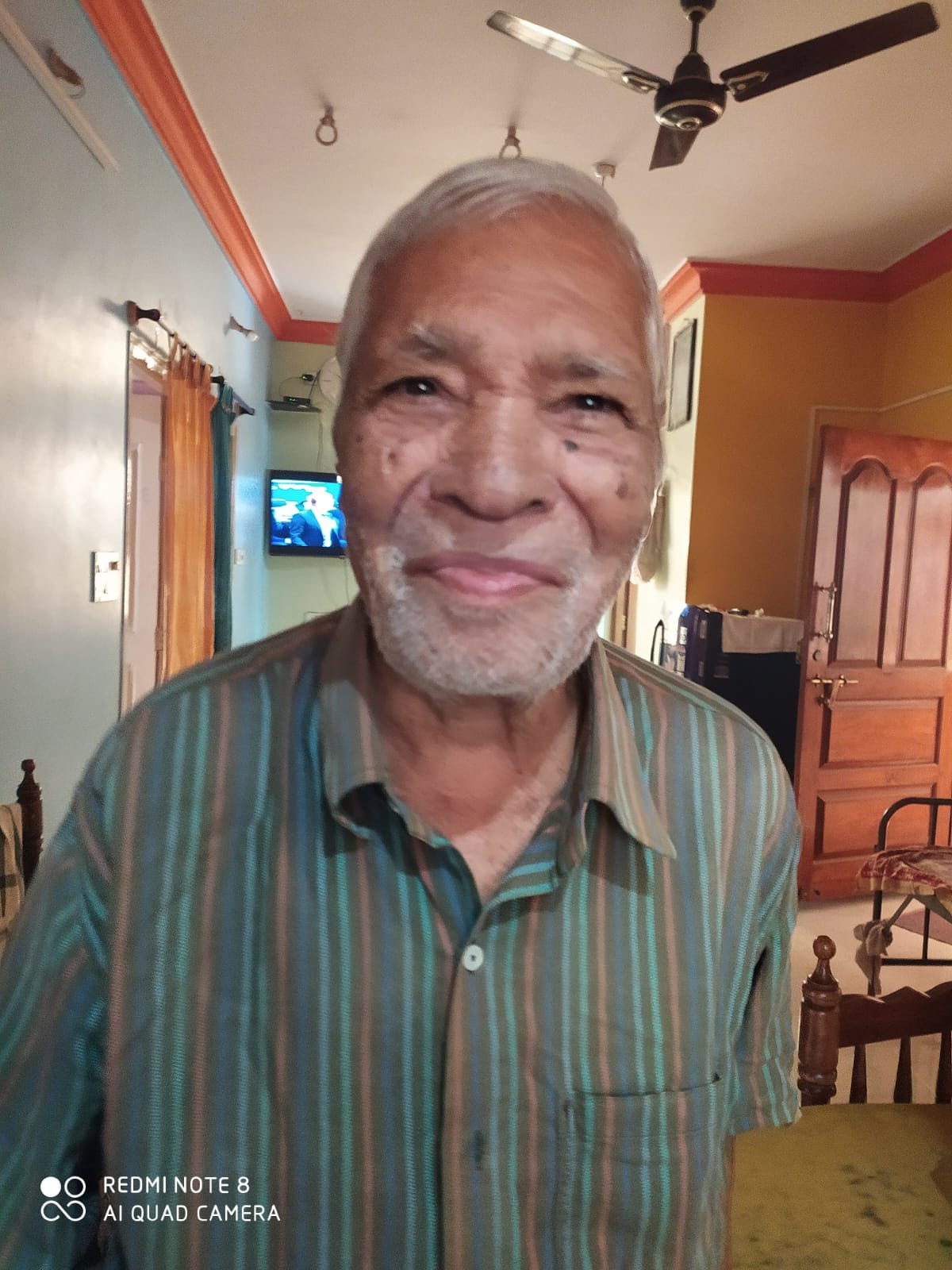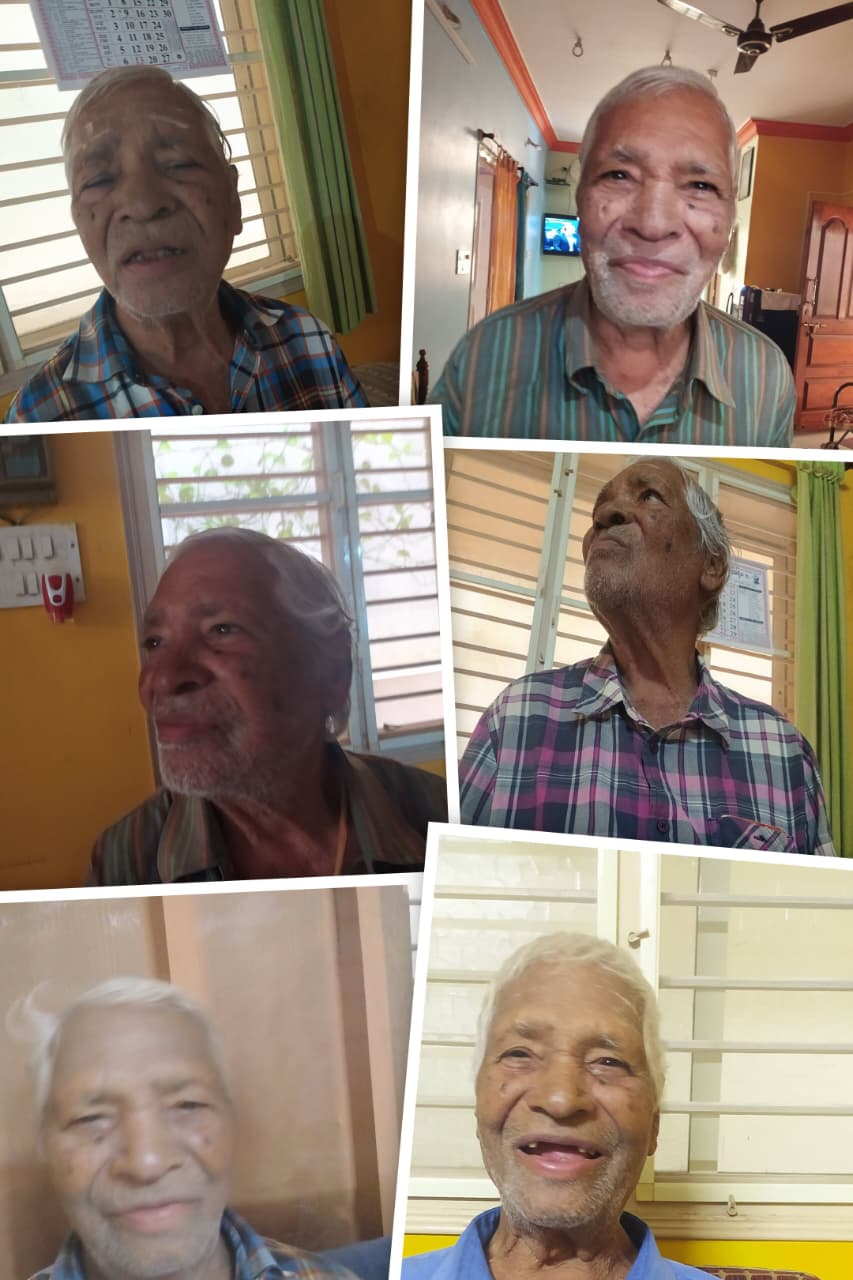Let me tell you a story.
In pre-independent Bharat, in 1935, in the small town of Bijapur (now Vijayapura), was born the third son of the Dixit family. The Dixits, though respected as Vaidik Brahmins, were not wealthy. His father, Shri Ananth Rao Dixit, was associated with the Congress, but as was often the case in those days, respect and recognition did not equate to financial security.
This third son—my grandfather, Lt. Annaji Ananth Dixit—was slow to speak in childhood, but by the grace of Bhausaheb Maharaj, his voice eventually blossomed. His early years were filled with struggle: some days he didn’t know where the next meal would come from. Yet, by virtue of being born into a Brahmin family, kind neighbors would offer him food out of reverence. Even as a child, life had already begun teaching him grit and endurance.
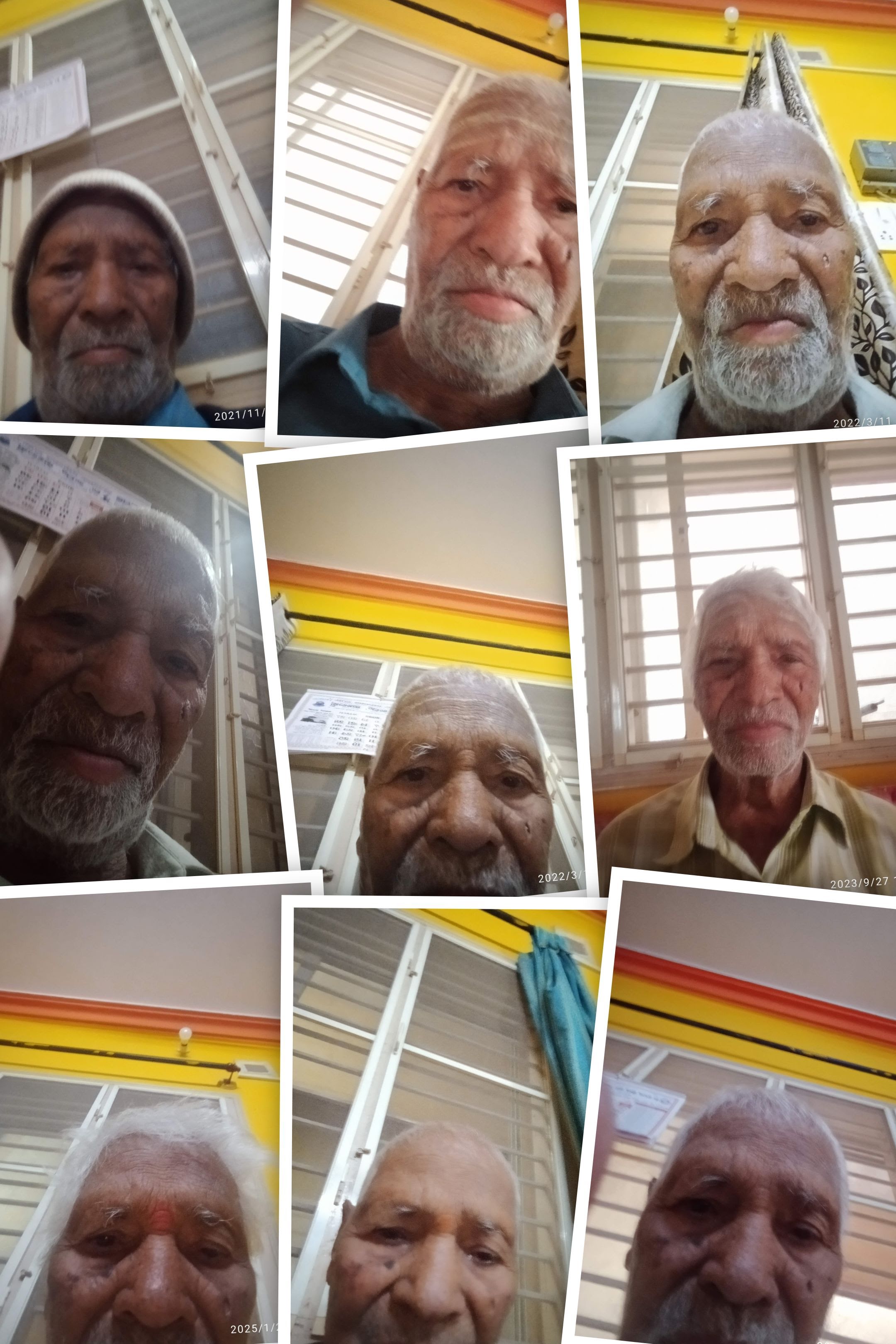
Ajju loved selfies.
The Young Swayamsevak
In his youth, Annaji encountered the Rashtriya Swayamsevak Sangh (RSS) even before independence. Attending Shakhas then was not just about discipline—it was a silent yet powerful statement of resistance against the British, and a step towards unity among Hindus. He grew up amidst turbulent times: following Gandhi's assassination in 1948, Brahmin families across Maharashtra and Karnataka were targeted in waves of anger. For months, the Dixit family remained indoors, surviving in silence, hoping the storm of violence would pass. I did not know about his Sangh background until last few years, when all of a sudden he started reciting "Namaste Sada Vatsale"!
Academics never came easy to Annaji, but sheer determination saw him through matriculation, even if it meant copying to scrape by. He then trained in ITI and secured employment at Kirloskar in Harihara. With stability came marriage—to Vanamala Deshpande, my Ajji, who became his lifelong partner in every hardship and joy. Together they raised four children with dignity, even in the face of economic struggle. He was a movie buff by night, a hardworking father by day—borrowing when needed, but never failing to ensure his children had new clothes during festivals. Their perseverance ensured that all their children became graduates.
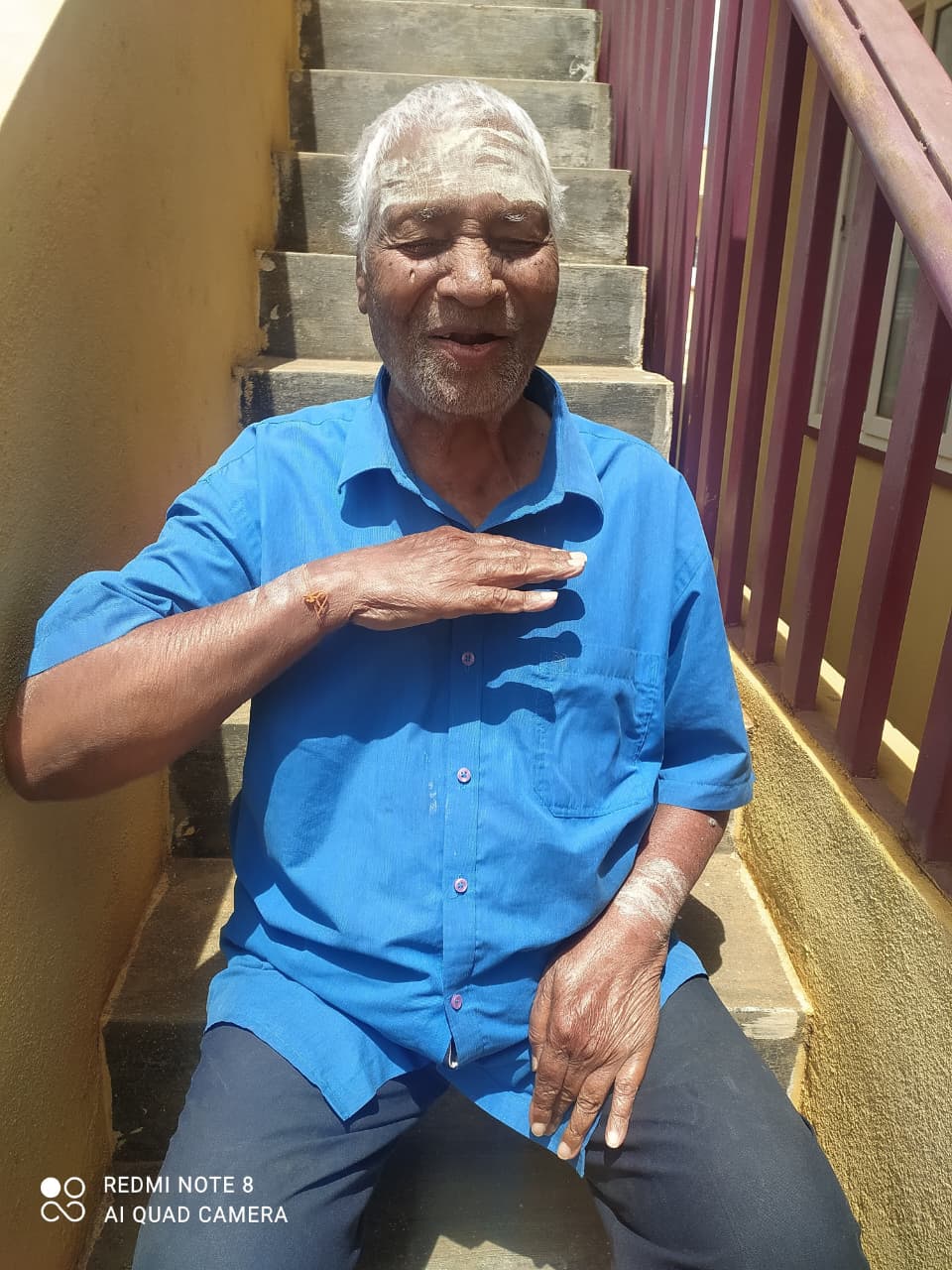
Joyful, resilient, and always smiling.
A Braveheart's Father
Two of Annaji's sons—Ajit and my father—dreamt of serving the nation in uniform. Ajit joined the Border Security Force (BSF), later excelling in commando training and qualifying for the Special Forces. My father initially joined the Army but stepped back, as the family felt one son's service was sacrifice enough.
Then, tragedy struck. In 1990, the family had newly settled in Bangalore when officers arrived at their doorstep with news that would break any parent:
Ajit Annaji Dixit had been martyred near Ayodhya, drowned in the sacred Sarayu river at the age of just 25.
My grandparents never saw his body—only his ashes, returned with honor, draped in the tri-color. Their world shattered. To this day, I cannot imagine the depth of that grief. A parent losing a son is unthinkable; to lose him in the prime of life, in service to the nation, is a wound that never truly heals. Yet, my Ajju and Ajji bore it with dignity. That resilience makes me bow my head before them every single day. I was not even born then, but I can still feel the pain they used to go through when something related to the Army or defense was being played on the TV.
Theirs was not just personal grief—it was a sacrifice that became part of Bharat Mata’s story. Imagine a young man, trained to defend his motherland with valor, never returning home, leaving behind only sacred ashes. Imagine two parents, watching their son depart in uniform with pride, only to welcome him back as a memory wrapped in the nation’s flag.
For my Ajju and Ajji, every sight of the Tiranga carried both reverence and piercing sorrow. Every Independence Day, every Republic Day, every news of soldiers at the border—it reopened wounds that never closed. Yet, they never cursed destiny, never turned bitter. They carried that unbearable pain with a quiet dignity, transforming their suffering into a symbol of strength.
Their son’s martyrdom was not just the loss of a life, it was the offering of an entire family’s peace at the altar of the nation. And still, my grandparents lived on, teaching us not to bow to despair but to rise with resilience. That is why, when I think of sacrifice, courage, and patriotism, I first think of Ajit the breveheart, and then of his parents—because they bore the heaviest weight any citizen can bear: the cost of freedom, paid in their own bloodline.
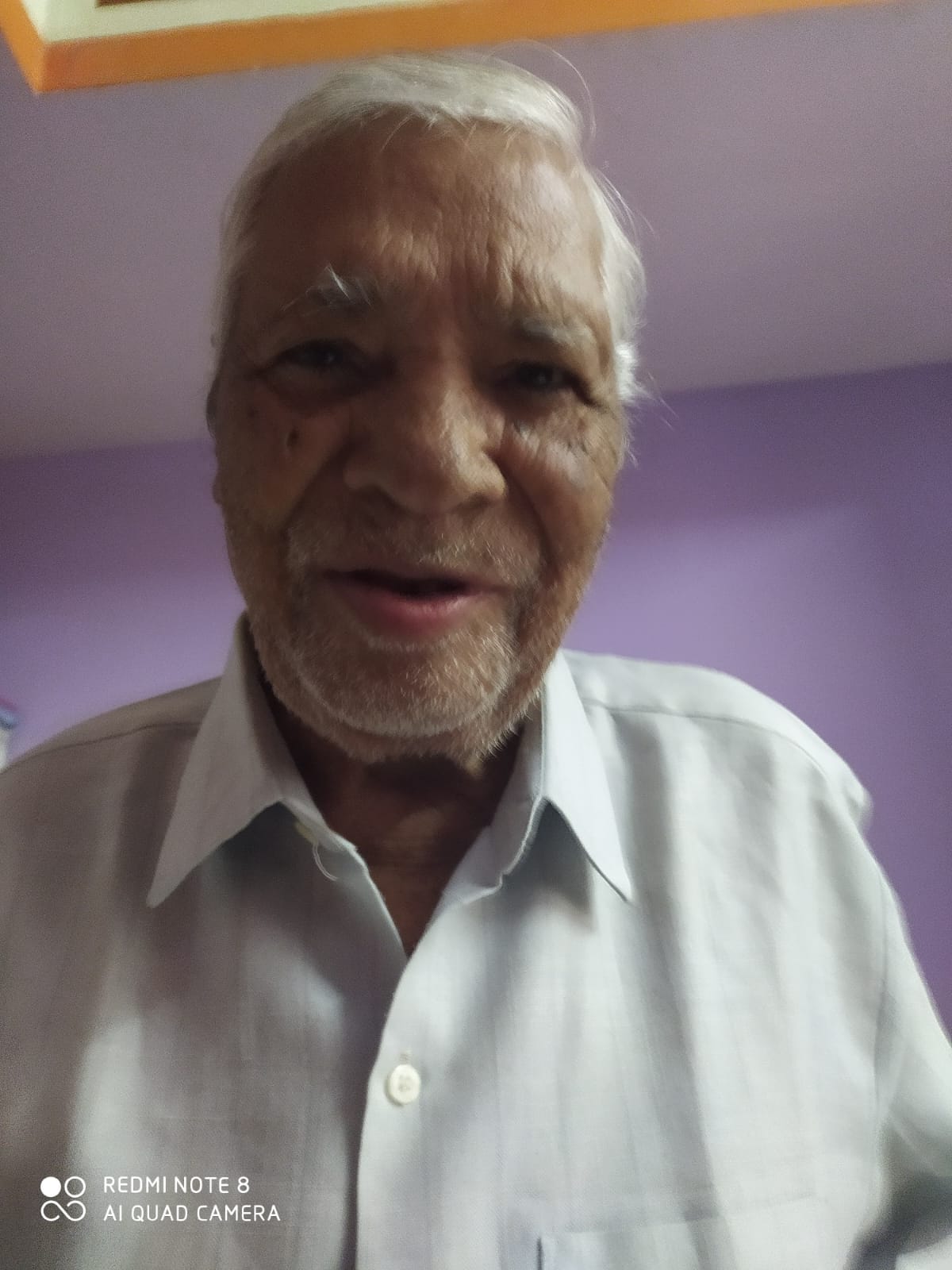
We remember with pride and love.
My Bond With Ajju and Ajji
By the time I was born in 1998, their lives were interwoven with mine. They raised me with as much influence—if not more—than my own parents.
- From Ajji, I learned values, culture, and moral courage.
- From Ajju, I experienced unconditional love, sacrifice, and the pure joy of companionship.
He was not just my grandfather—he was my best friend. The most active, patriotic, and fun-loving man I have ever known.
When Ajji passed away in 2019, Ajju’s heart broke. Yet, even in old age, even in grief, he never complained, never faltered. His mental strength was boundless. He endured pain that would break most men—the loss of his wife, the eternal ache of his martyred son—and still remained a pillar of positivity and love.
Lessons for Us All
The purpose of writing this is not to evoke pity. It is to remind everyone that caring for our elders is not a burden—it is a privilege. They are living libraries of resilience, courage, and love. No textbook can impart the life-lessons I gained simply by watching my Ajju and Ajji face life's storms with unshakable dignity.
Ajju, I miss you, my man. I always will. But I carry your spirit with me, and I will always be proud to say:
- You were a father to a Braveheart.
- You were a husband to a remarkable woman.
- You were the strongest, most loving grandfather one could ever hope for.
Put some respect on his name. Always.
